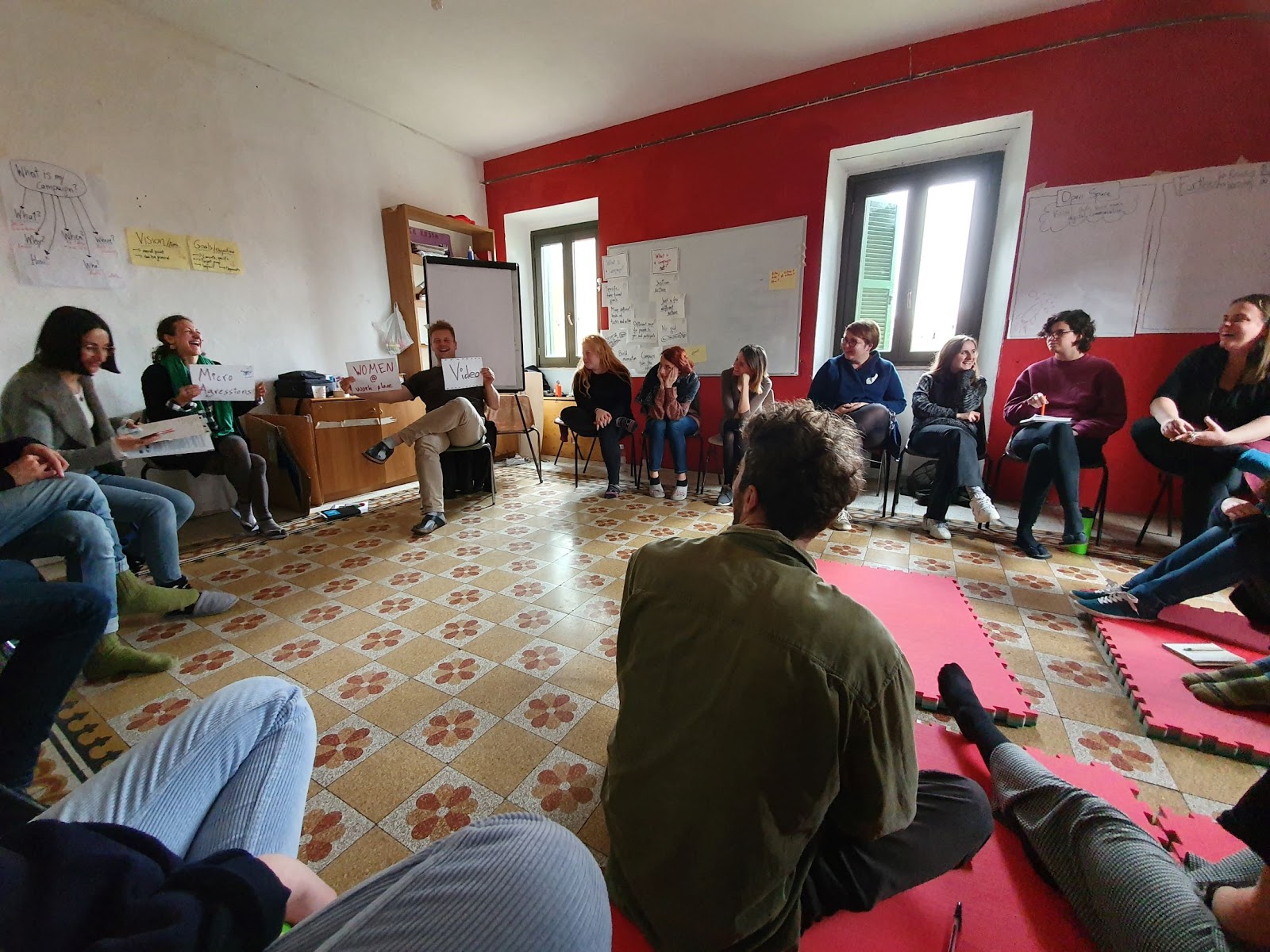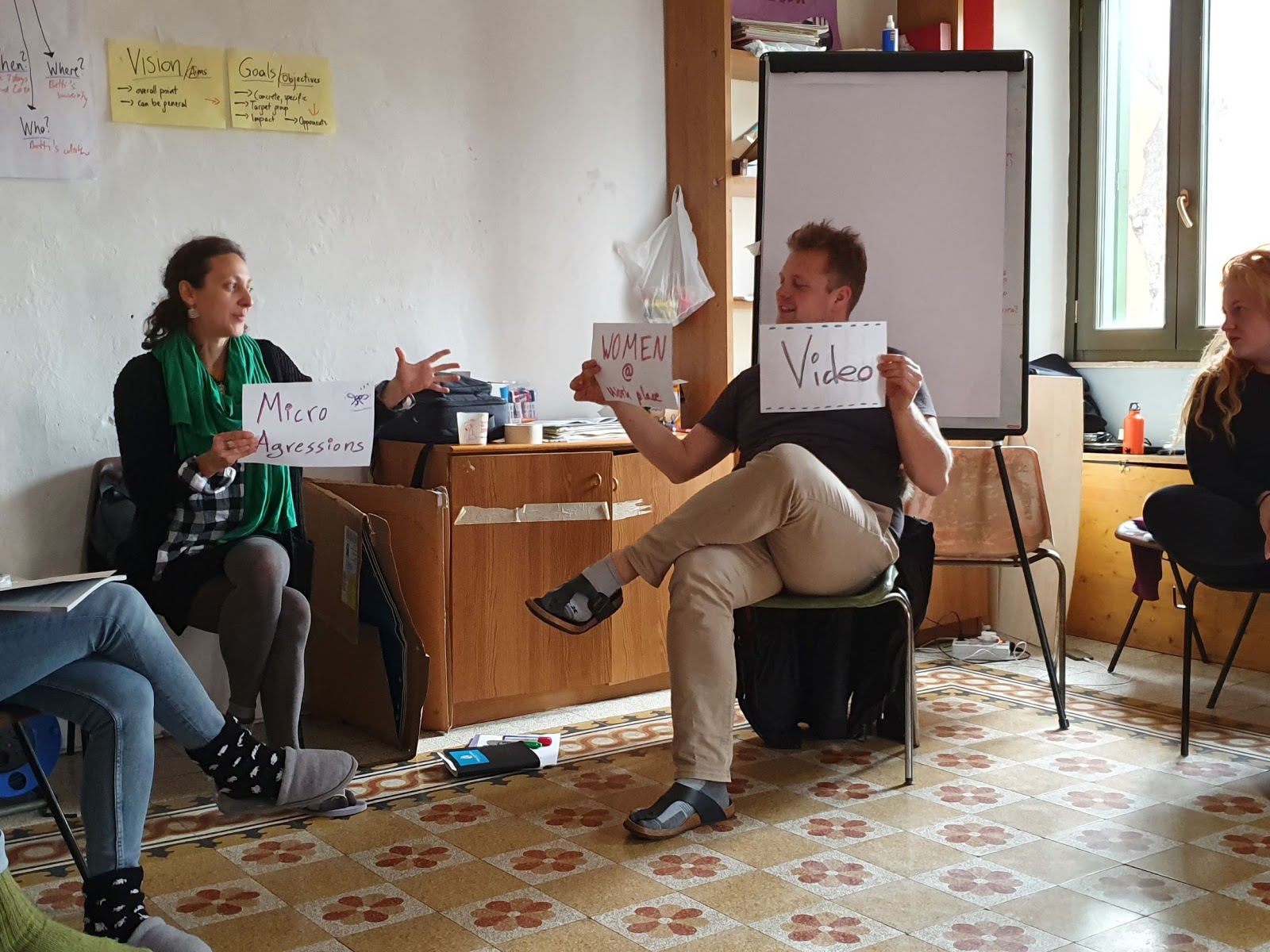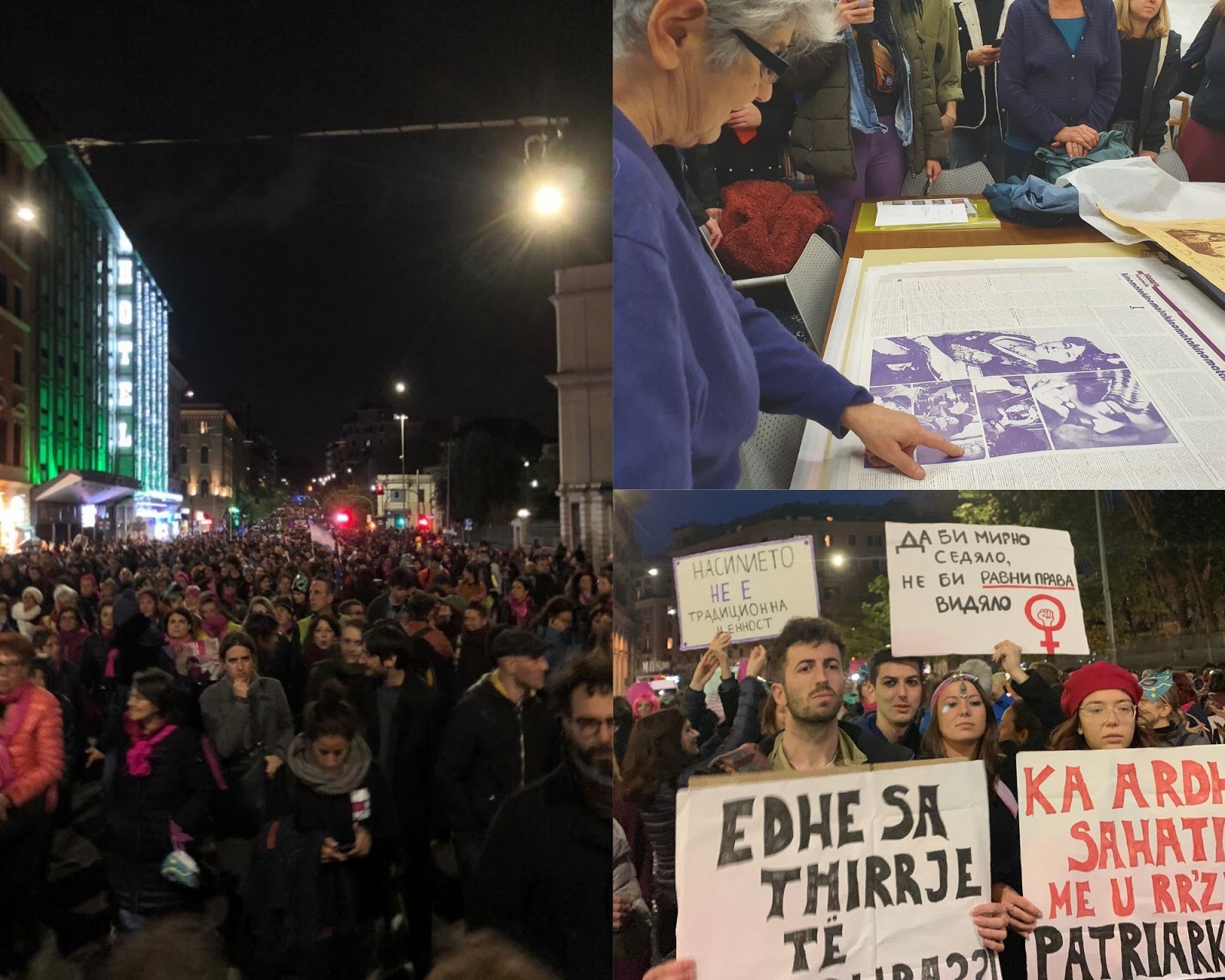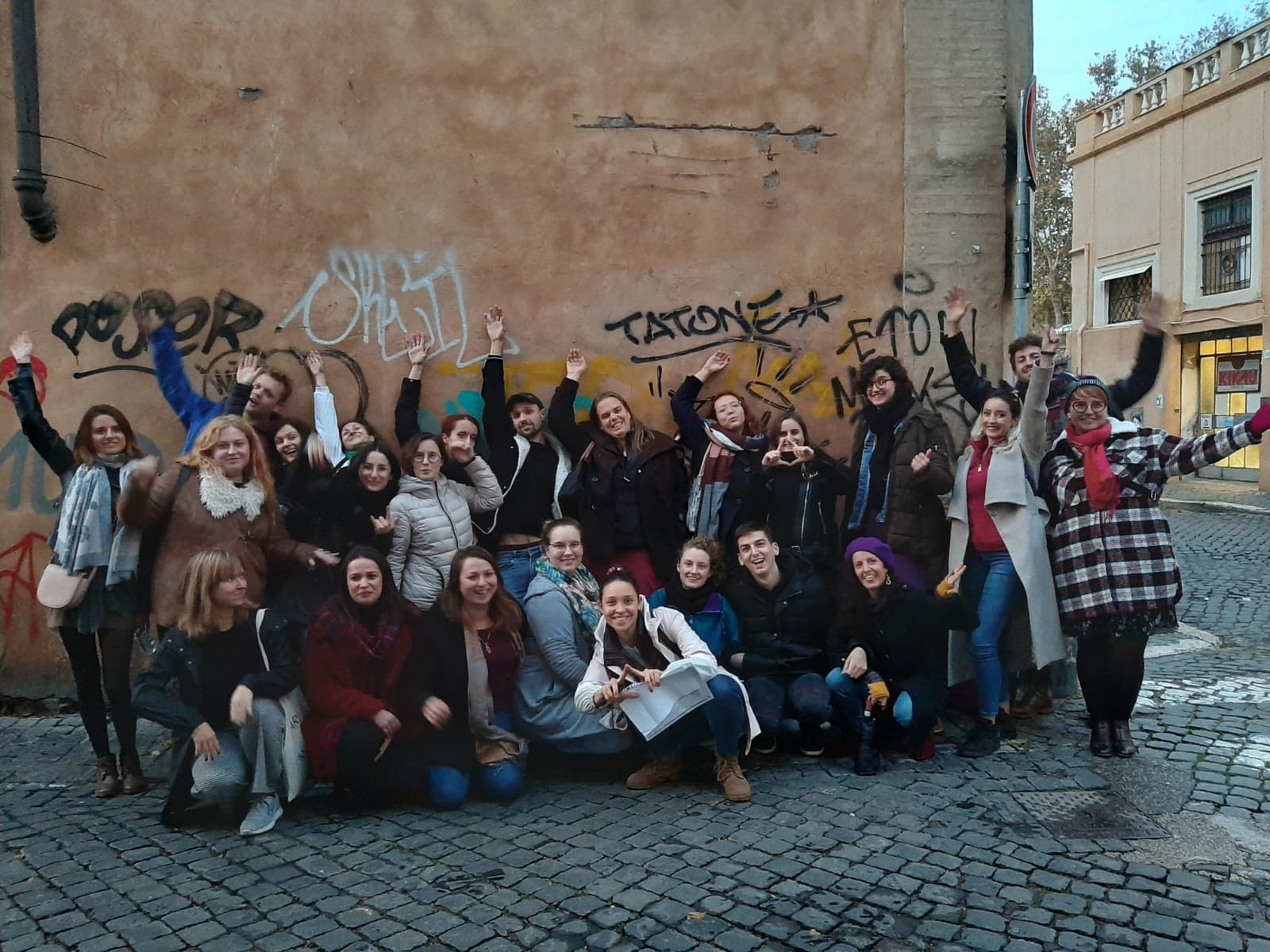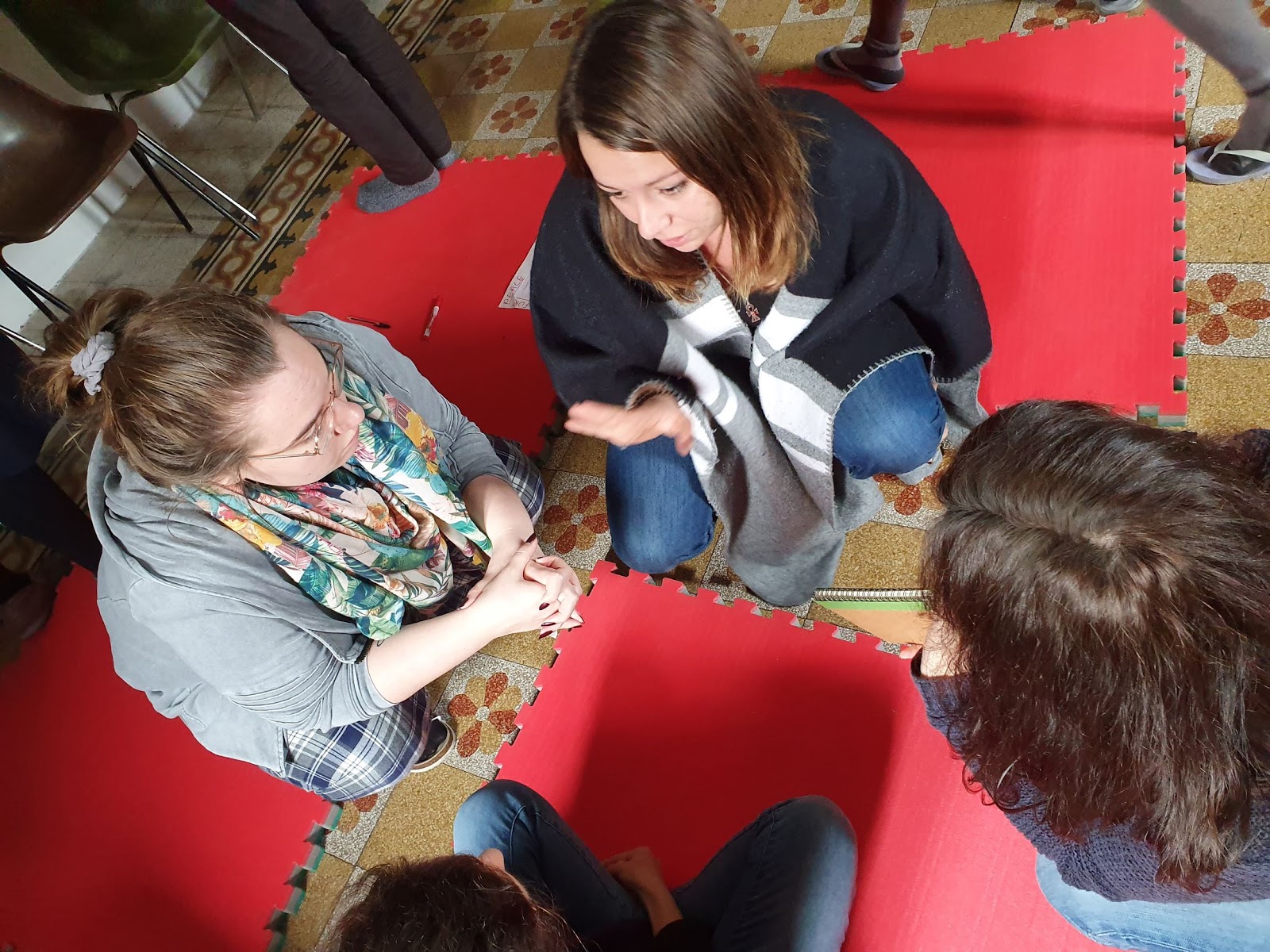Gendered realities
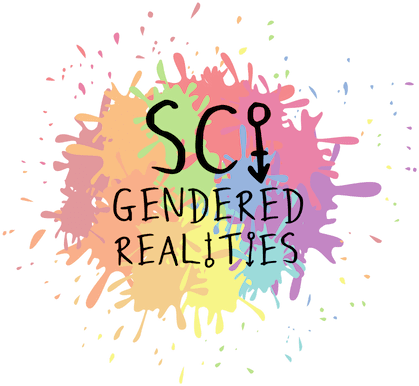
“Gendered Realities” is an annual Work Plan for 2019, aimed at increasing understanding of the gender topic and the present realities in SCI activities.
January - December 2019
The idea
The Work Plan aims to better understand the different gendered realities existing in SCI activities. It addresses the topic in SCI globally and focuses on assessing how safe and inclusive our activities really are. It supports existing efforts of SCI members in the gender field, pools resources and particularly furthers the development of a toolkit which will support leaders to make their activities inclusive for all gender identities.
The activities
The Work Plan consisted of two international activities and a series of local follow-up actions. All the activities have successfully taken place.
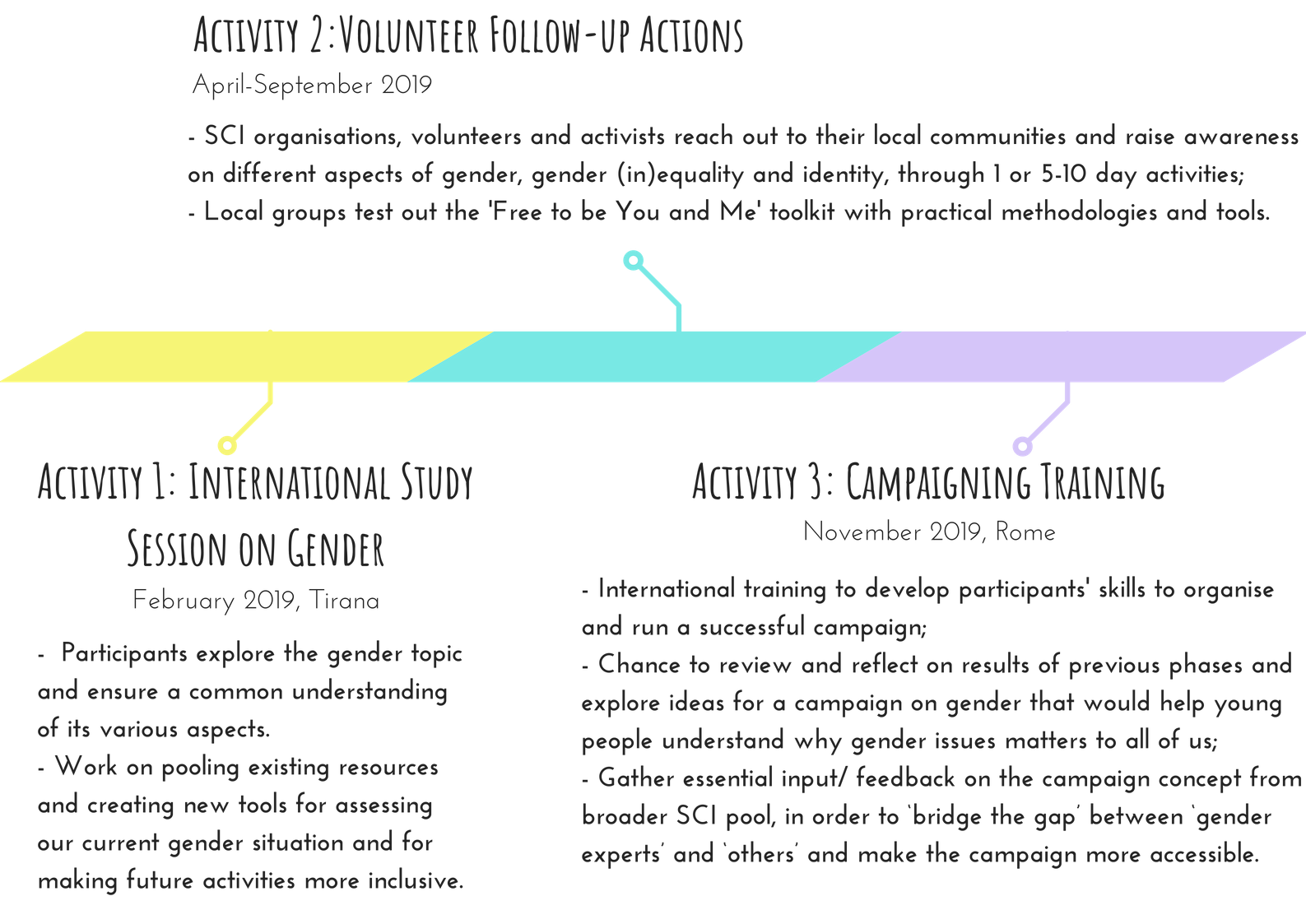
International Study Session on Gender
Tirana (Albania), 12 – 17 February 2019
25 participants had a meeting to develop a common understanding of the gender topic, map existing efforts to address gender issues within SCI and work on 3 key outputs.
Local Actions
In partner Countries (global), April – October 2019
14 local SCI groups run local actions, lasting between 1 to 10 days, which addressed a specific gender issue affecting their local reality.
Campaigning Training
Rome (Italy), 19 – 24 November 2019
A 6-day training to give participants the skills to construct and run a successful campaign. It was also a chance to review the project and bring together results achieved so far, and create a strategy for how to address these beyond the project’s lifetime.
Research: the Gender Assessment Tool
We have created an online gender assessment tool to understand how safe and inclusive SCI activities are when it comes to gender and sexuality. We asked ourselves:
- Does gender or sexuality affect people’s experiences at SCI activities?
- Are there situations or procedures that make people feel discriminated against based on their gender?
- Do people feel confident in recognising and addressing gender-based discrimination during SCI activities?
Please dedicate 15 minutes of your time to share your SCI experience in our online gender assessment tool.
Your contribution will help us gather data and testimonies about the experiences of individuals participating in SCI activities. We will use the outcomes of this research to identify areas for future attention and to take practical measures to keep improving the quality of SCI activities.
Who can take part? Volunteers (participants or coordinators) to SCI workcamps or international training courses/seminars from the past five years.
Resources
The project team has worked on 3 important resources: a toolkit, a survey with a booklet presenting the results, and gender-inclusive labels.

Free to be You and Me, toolkit on gender
The toolkit provides comprehensive information on gender and sexuality, along with practical guidelines and easy-to-use tools, with the aim of helping leaders to address the topic of gender and sexuality in their activities. It is hoped that this will be a tool which helps to make activities more safe and inclusive for all, regardless of gender identity or sexuality.
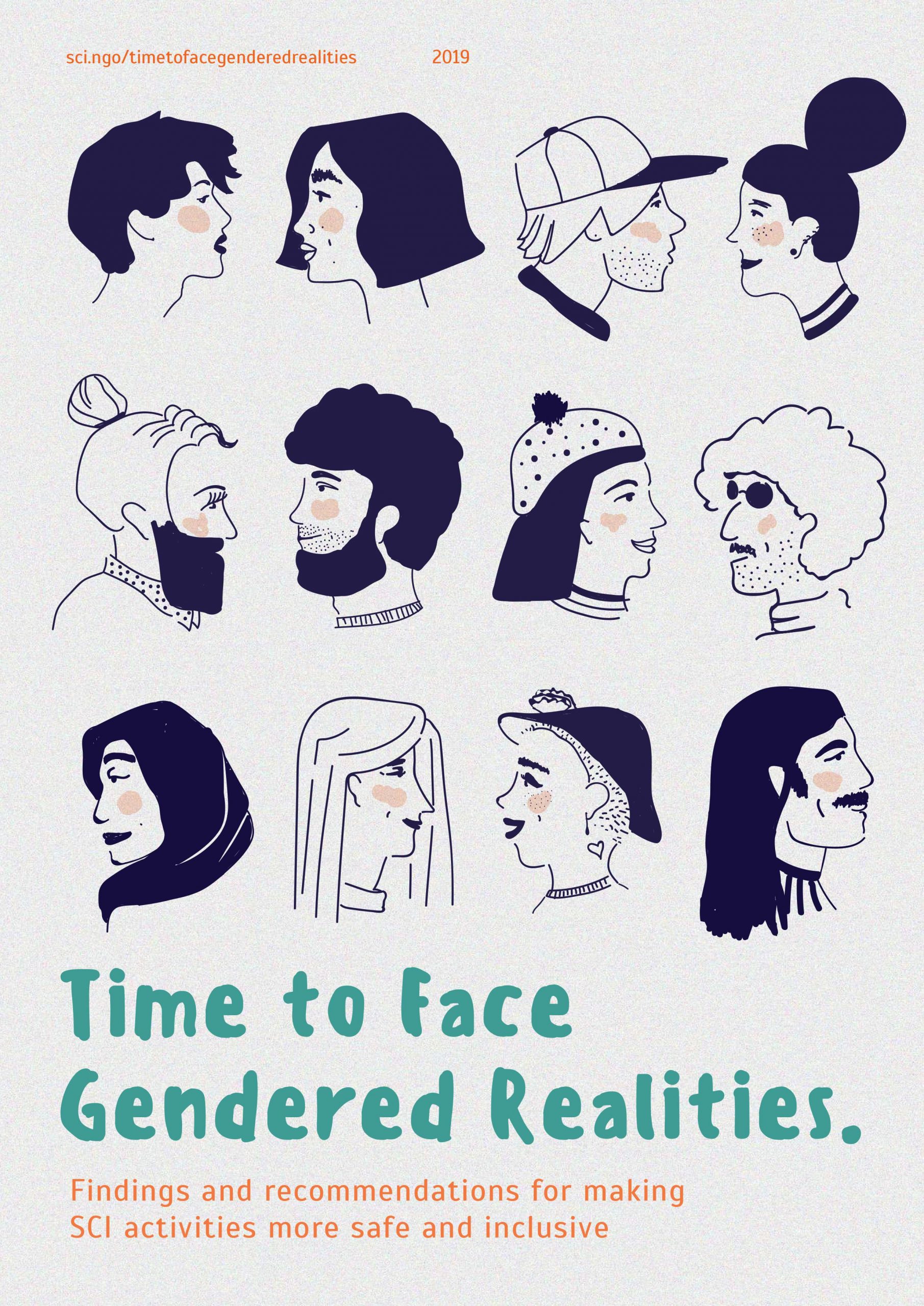
Time to Face Gendered Realities, booklet
The booklet summarizes the results of a survey that took place between June and September 2019 and that, through the Gender Assessment Tool, collected the input of 119 SCI volunteers and activists. The objective of the survey was to understand how safe and inclusive SCI activities are when it comes to gender and sexuality by looking at the experiences of participants in different SCI activities. It also provides recommendations to the SCI movement on how to rethink its daily practices and activities in order to make them fully safe and inclusive for all.

Time-to-Face-Gendered-Realities, name tags
These name tags can be used by trainers, youth workers, coordinators and anyone who would like to include a gender perspective in their activities, by encouraging participants to think about gender as a spectrum and not as a binary (male/female) concept, and giving the opportunity to open up the conversation.
Supporters and partners
The Gendered Realities project is supported by the European Youth Foundation of the Council of Europe, and the first activity is co-funded by the Participation Programme of UNESCO.

The project was carried out by an international project team in collaboration with the Gender Blenders Working Group and volunteers from 12 project countries.
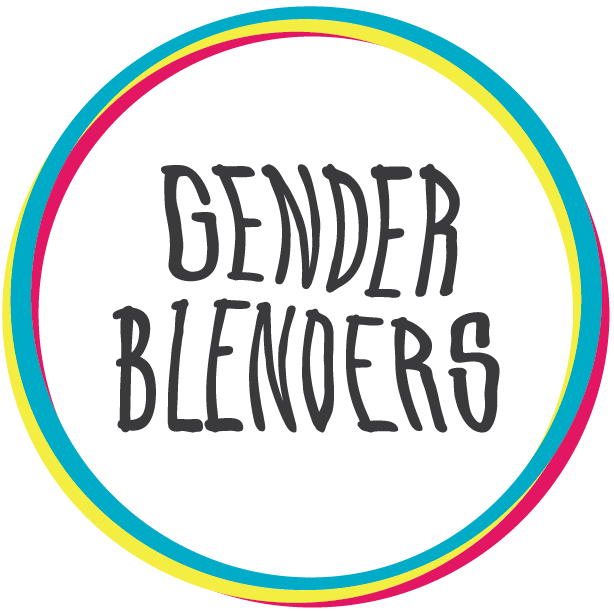
International Study Session on Gender
The first activity of Gendered Realities took place from 12-17 February in Tirana, Albania, where a group of 25 participants from more than 11 countries met for an International Study Session on Gender.
In the 5 days of training, participants had time to explore the topic of gender in detail, finding common understandings of key terms and concepts. With this as a basis, the group went on to discuss common experiences of gender-based discrimination and inequality within the context of volunteering. These conversations fed into methods for creating a ‘safe space’ in our activities.
To explore the specific context of the Albanian reality, the group went on study visits to two local organisations: an LGBTQI+ Centre and a Centre for Victims of Trafficking. They were able to discuss local issues in more depth during these visits. A guest speaker also offered insight into how gender roles are defined in parts of the Balkans, throughout history until today, through the study of ‘Sworn Virgins’.
Participants then worked on the following resources:
- Input on the gender toolkit, ‘Free to be You and Me’, which was finalised after the training;
- Creation of a new assessment tool for participants/volunteers, which was used to research common problem areas in SCI activities;
- Editing a self-assessment tool for organisations, developed by SCI Catalunya;
- Development of ideas for local follow-up activities.
Gendered Realities project is funded under the European Youth Foundation’s annual Work Plan, and the study session was co-funded by UNESCO’s Participation Programme.
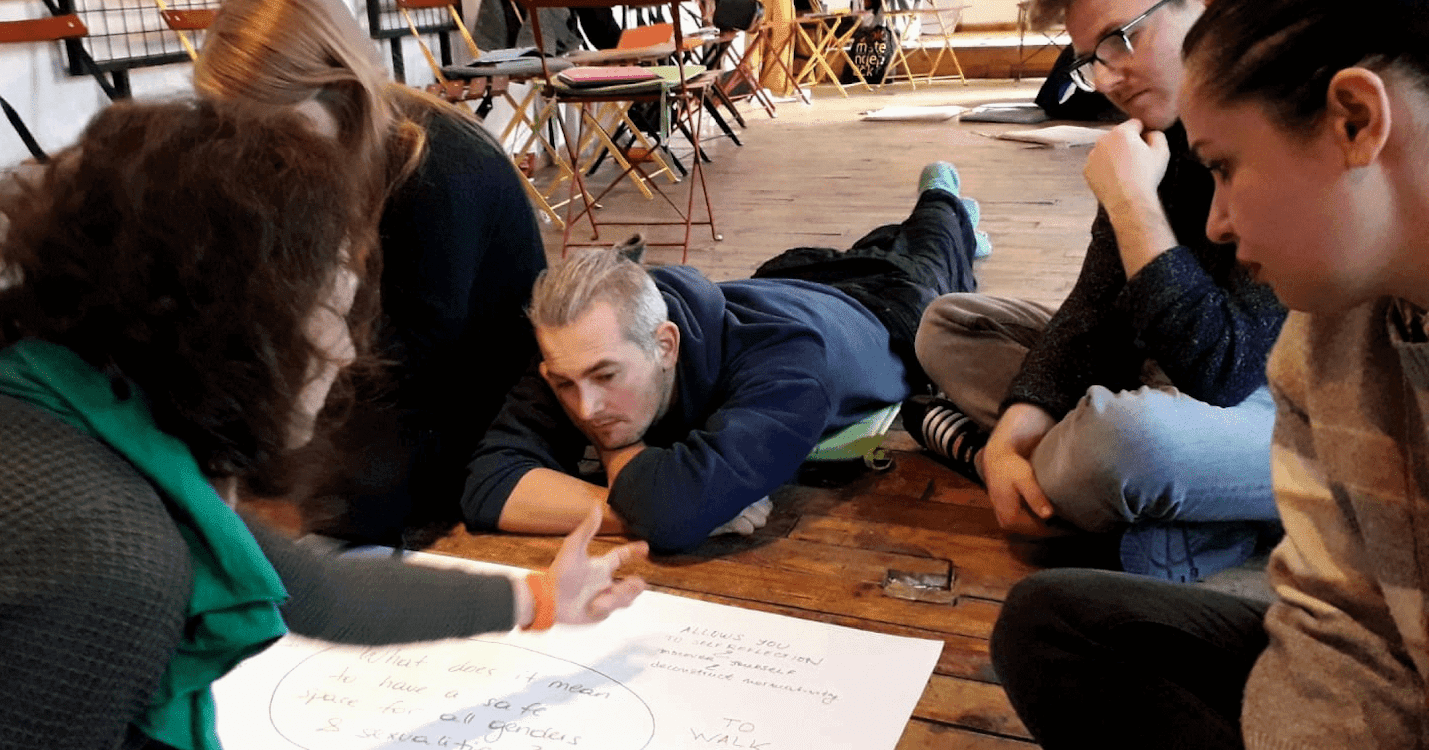
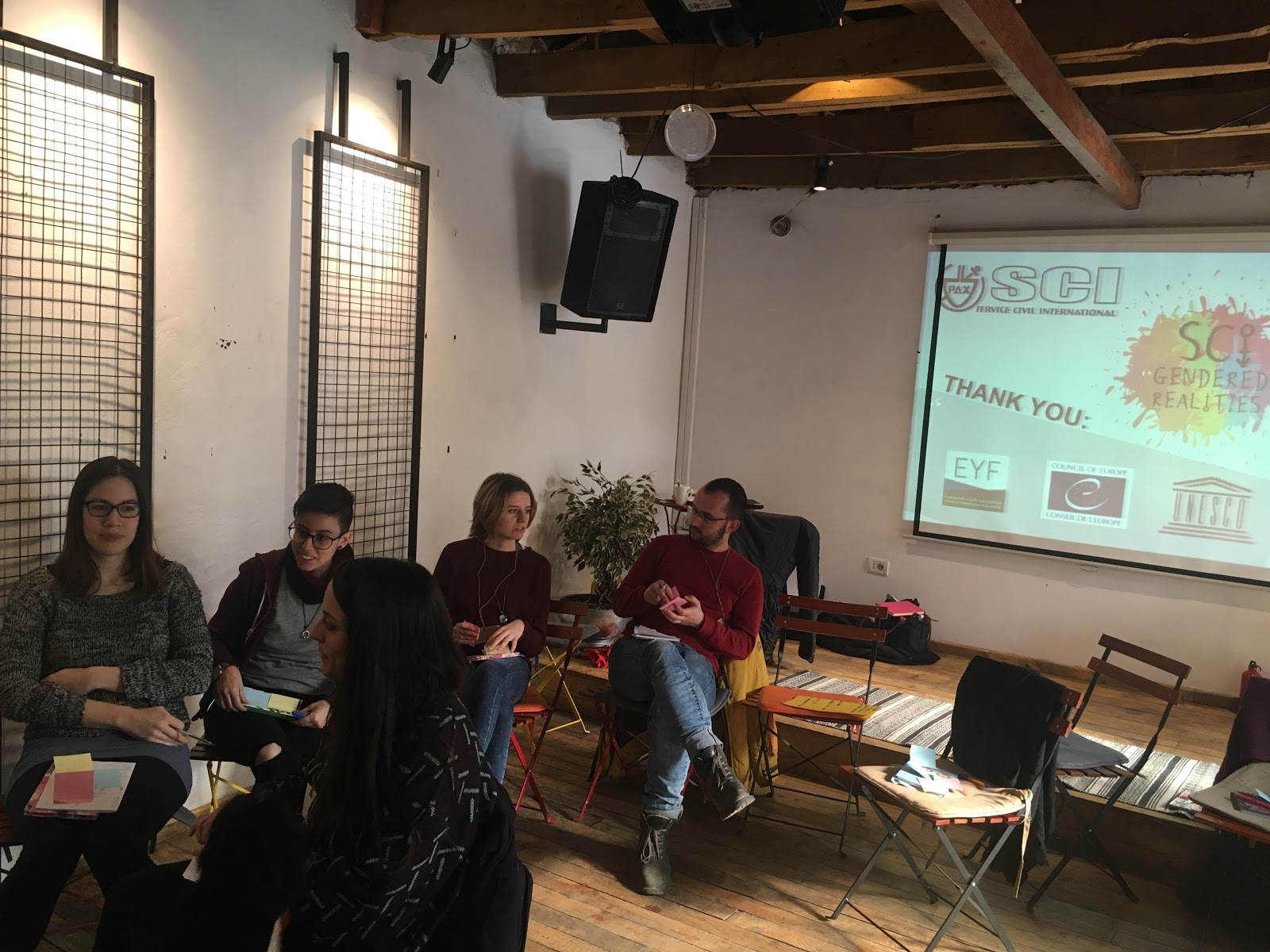
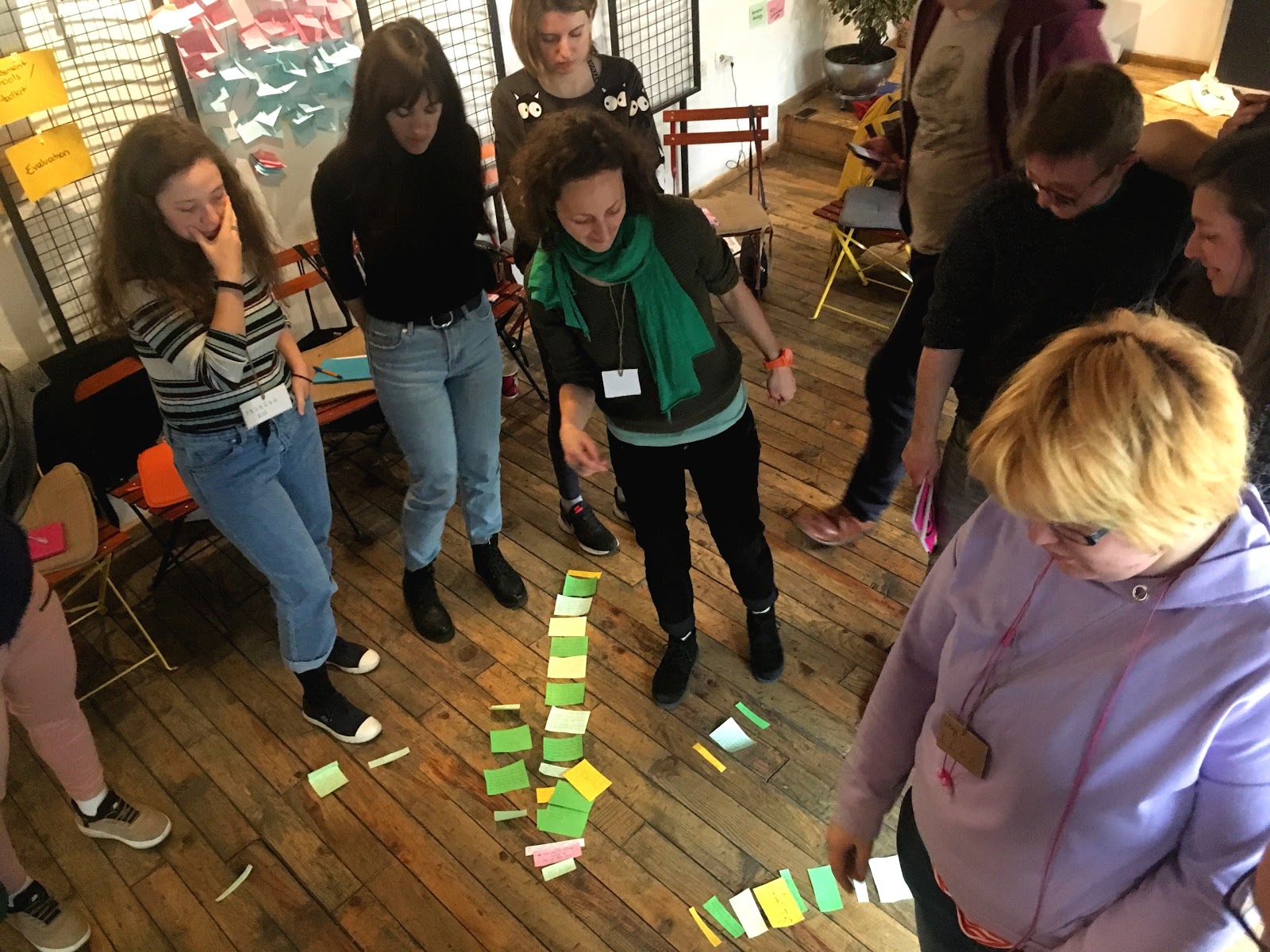
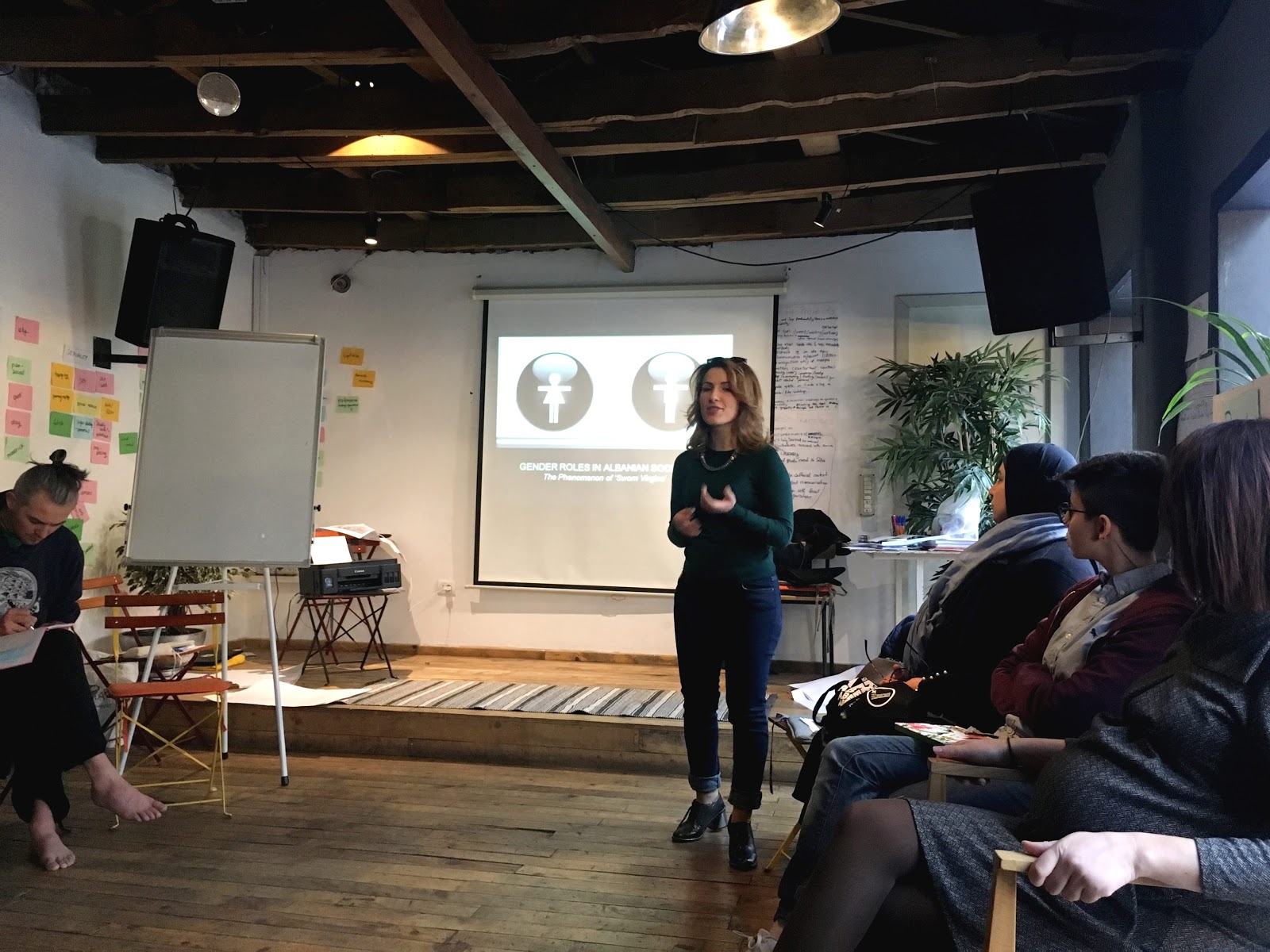
Local actions ran from April to October 2019. They are local actions on the topic of gender that aim at reaching out to (young) people, raising awareness of gender-related issues, supporting the assessment of gendered realities in volunteering activities.
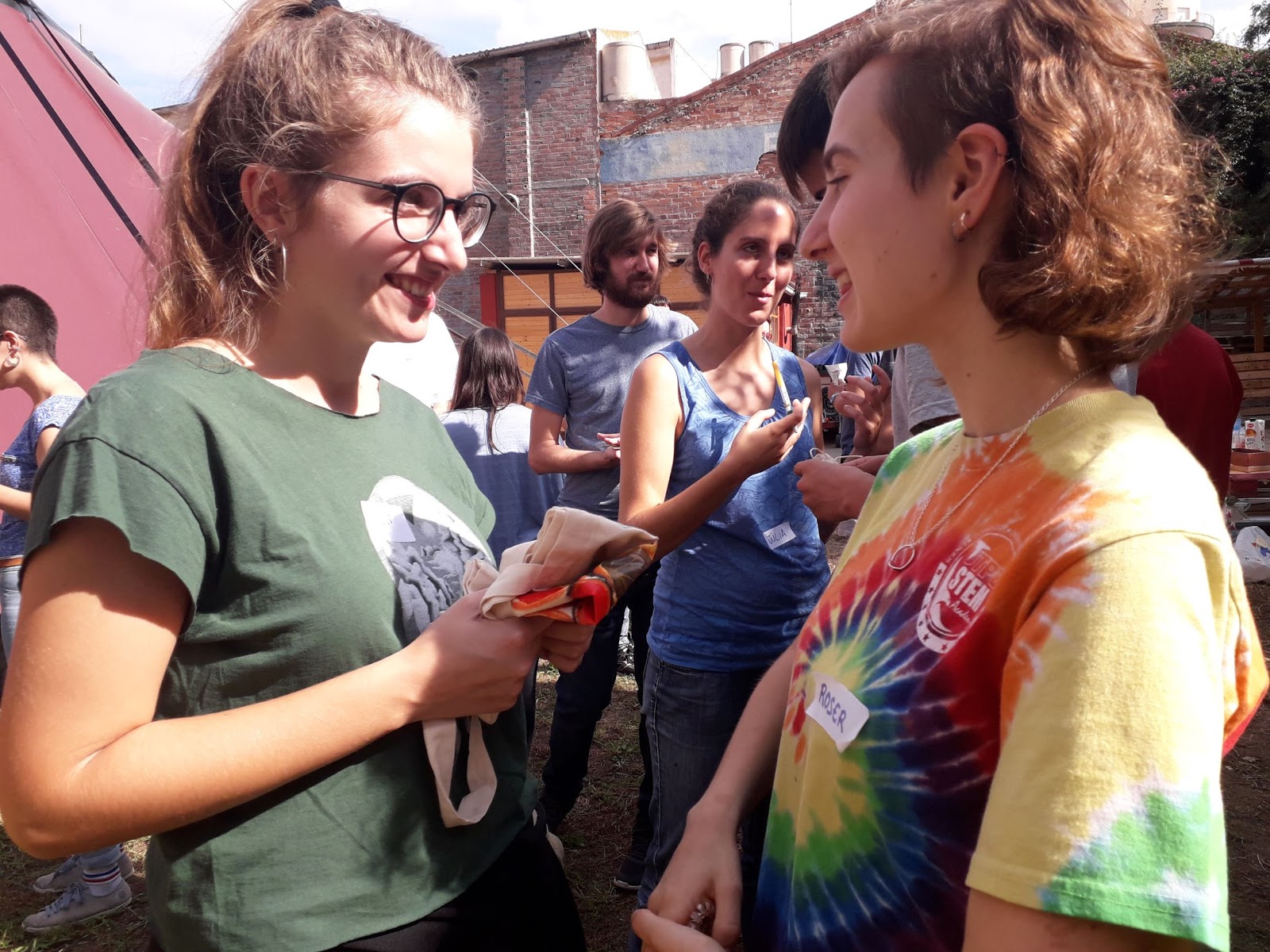
Storytelling Workshop with Gender Perspective
Mataró (Catalonia, Spain)
5 October 2019
30 SCI volunteers had a workshop about storytelling. During the workshop, the young participants reflected upon and discussed their personal experiences as SCI volunteers by using the non-formal education method of storytelling. A special emphasis was put on gender-based micro-discriminations experienced by the participants during their workcamps.
Thanks to the creation of a safe space prior to the beginning of the core activity, the participants felt free to express themselves, build their personal stories and share them with the group.
Check the Facebook post of the event here!
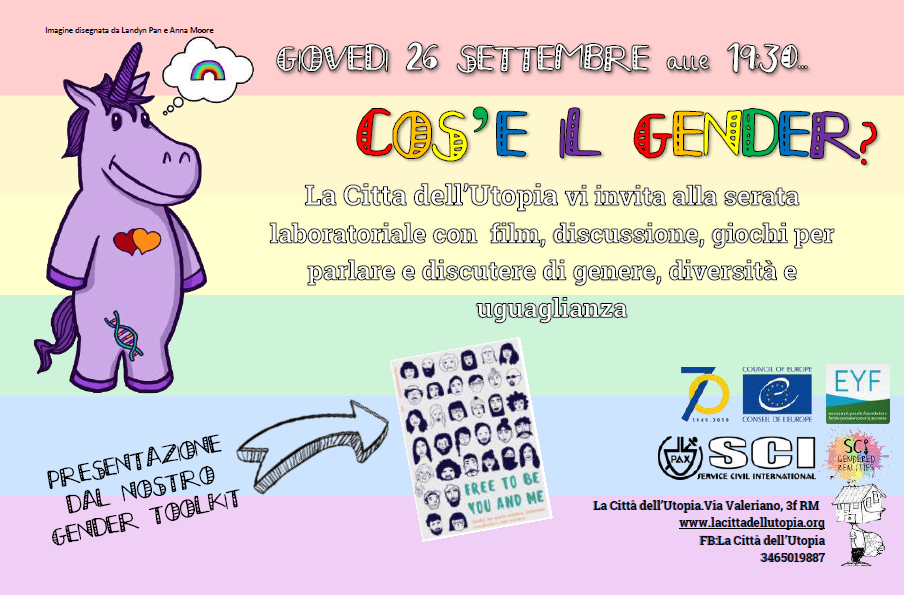
Social Evening: “What is Gender?”
Rome (Italy)
26 September 2019
SCI Italy ran a Social Evening focused on gender and intersectionality. The evening started with a screening of videos related to the topic, followed by an ice-breaking activity and finally a session dedicated to the “flower power” from the gender toolkit. After each part, a 15-minute discussion was opened in order to encourage debate and share reflections among the participants. The general purpose of the event was to introduce the gender toolkit to the participants and create a group of discussion on gender that would repeat similar initiatives in the future.
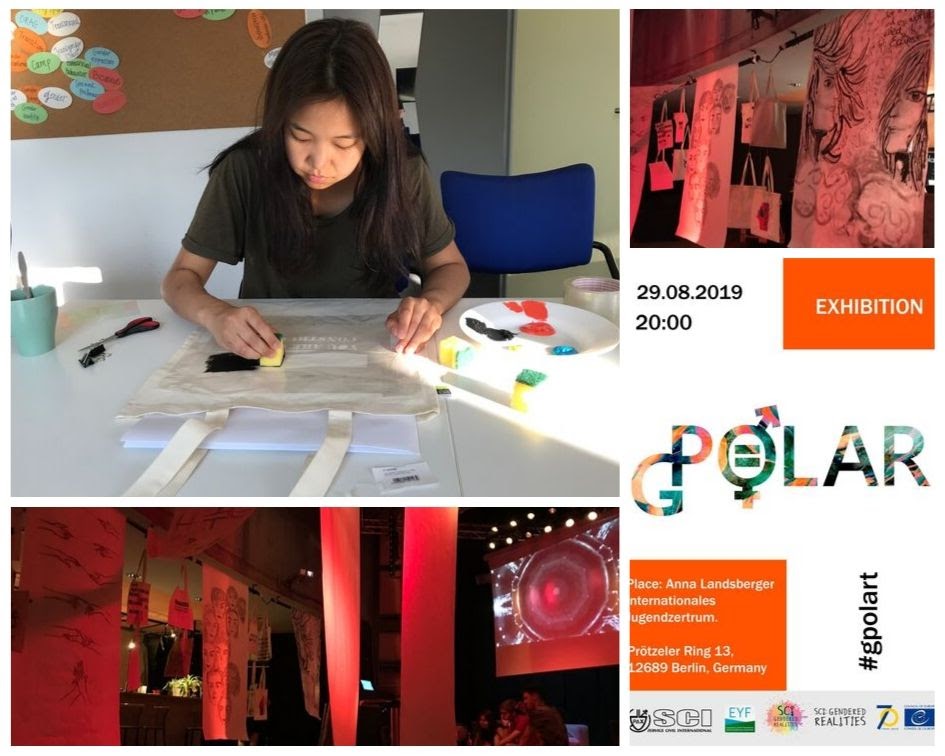
Gender Equality through Art
Berlin (Germany)
17-31 August 2019
The activity aimed at raising awareness on gender inequality through arts and involved 15 young people from different European countries. During the first week, the participants attended a workshop on gender equality run by Micayla Smith and visited the Schwules and Charlotte von Mahlsdorf museums. They practiced living in a hierarchy-free and independent community through a Leadership Free method (LSF) seminar and learned how to design their own social projects through a Do It Yourself – Peace Activism seminar.
The second week was devoted to the creation of an art exhibition on gender. The participants designed and created artworks (video and audio projects, stencil and mural art pieces) that were then displayed at the G-Polar exhibition, opened to the public on 29th August and staged at the Anna Landsberger International Youth Center.
Check out the G-Polar exhibition Facebook page here!

Workcamp on Gender Equality
Vlahi (Bulgaria)
August 2019
This one-week workcamp involved 10 girls from different social and cultural backgrounds and focused on gender equality and women empowerment.
During the workcamp, participants shared their personal experiences of gender (in)equalities and challenged traditional gender roles through activities designed to build self-confidence and deconstruct gender stereotypes. Activities included building a camp-table with materials found at the campsite, playing a game inspired by the “Run Like a Girl” commercial, and workshops on body image, beauty standards and gender representation.
Feedbacks from the participants provide evidence for the success of the workcamp. Girls had the chance to develop a higher sense of self-respect, learn about different realities and points of view, and develop new skills by challenging their own abilities.
Discover more about the camp by reading a volunteer’s story and these Facebook posts: here and here!
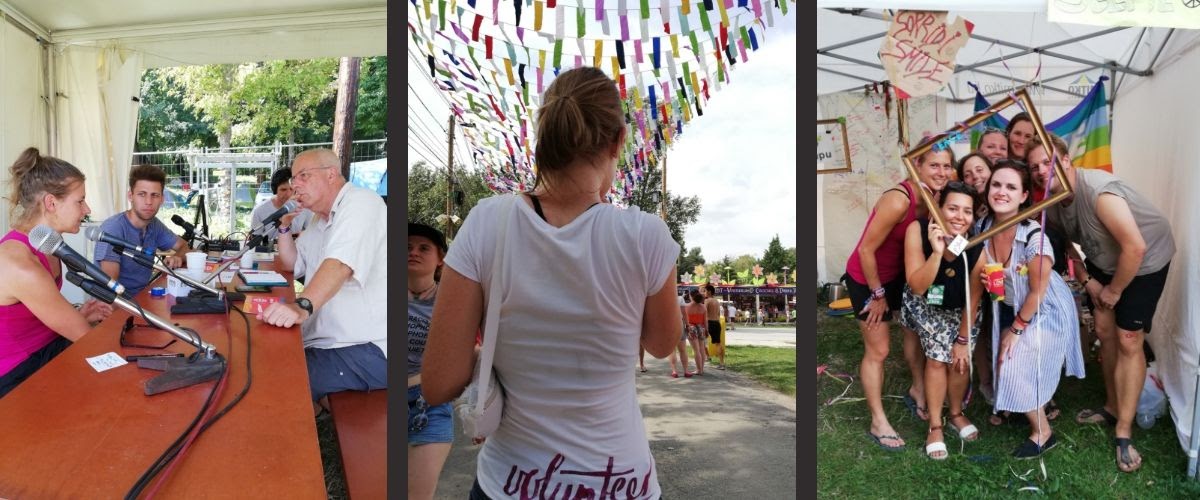
Gender Action at Sziget Festival Civil Island
Budapest (Hungary)
August 2019
Every year in Budapest, tens of NGOs take part in the Sziget Festival, a music festival where NGOs can showcase their work to hundreds of visitors and raise awareness on the issues which are most dear to them.
This August, SCI Hungary was one of the 45 NGOs setting up a tent and involving curious visitors in funny and educational activities, in collaboration with a group of SCI volunteers.
Through the gender quiz “Love Silhouette” and a workshop on gender, they opened discussions on issues such as body consciousness through mediation, the environmental impact of women’s toiletries and hygienic products, the gender pay gap and the terminology of gender.
Find here a Facebook post with a quote from Dorina!
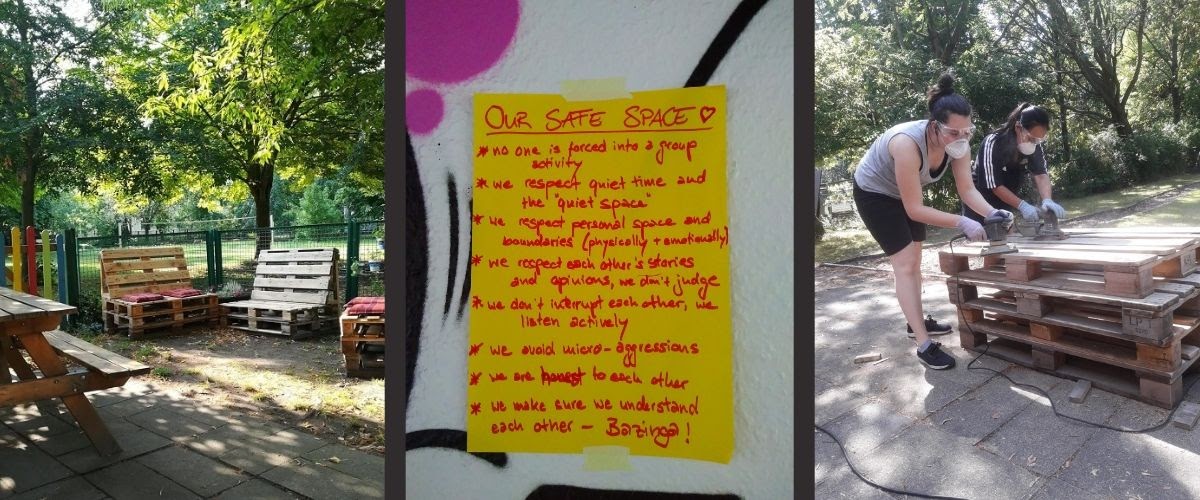
Gender-camp at Kreafithaus
Berlin, Germany
22 July – 3 August 2019
SCI-Germany ran a workcamp involving twelve volunteers from multiple CoE countries and members of the local community.
Volunteers learnt about the Girls Sport Centre Kreafithaus, a centre which gathers girls and young women from difficult life situations and supports them in their personal development through sports and socio-educational support. Together with a group of local girls and young women, the volunteers carried out physical work entailing constructing a compost, building an insect hotel and crafting garden furniture from euro pallets. They also visited an all-women carpentry workshop and joinery which trains young women to become professional carpenters. There, they were encouraged to try out different tools and engage in physical and technical labour irrespective of gender.
The “Free to be You and Me” Toolkit provided inspiration for a fruitful discussion on how to create safe spaces. Participants shared their views on women’s rights in their respective countries and deliberated for hours on the impact of gender norms on women’s lives. Discussions resulted in the drafting of a short “constitution” which guided the group dynamic and work atmosphere during the workcamp.
In addition, the volunteers marched in the Berlin Pride Parade and visited the Champions Without Borders project, which organizes sports and tournament opportunities for refugees and asylum seekers and connects them with host communities. As a team, they participated in a training session and engaged in a friendly football match against the Champions Without Borders’ Ladies’ team.
One participant says: “I feel like the workcamp has changed me in different ways. I’ve gained confidence about physical work. I’ve realized that the only thing that matters is the amount of practice, not the gender.”
See a Facebook post on the Gender-camp here.
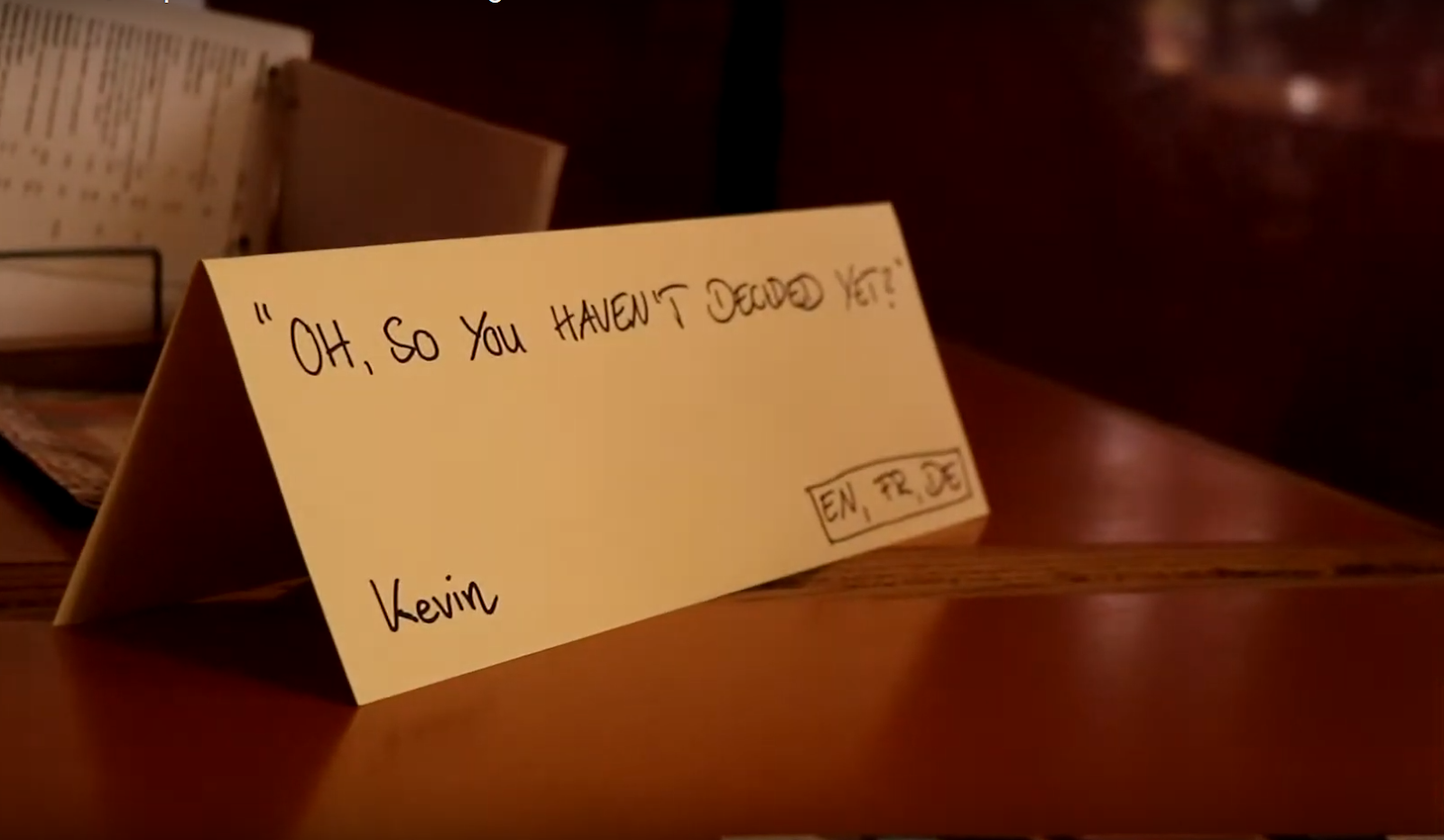
Living Library Geneva: “Chapters of self-acceptance”
Geneva (Switzerland)
5 July 2019
On the occasion of the Geneva Pride Week, a group of SCI volunteers organized a Living Library: a library where books are people! During the event, five “living books” shared their stories of self-acceptance and coming out with other people.
More than thirty participants interacted with the “living books,” listening to their stories, asking questions, and expressing their own feelings and ideas. The aim of the event was to allow people, especially the youth, to open up about what they feel and who they are, to reflect on their identities through live exchanges with real humans, instead of finding answers in books or on the Internet, as it most usually happens.
The event was a success, as this testimony from Tanya, 26 year old, shows:
“For me, the Living Library was a first-time experience. Most of my queer friends in Geneva had recounted their experiences in casual conversations over drinks and dinners, but this was the first time I actually got to listen to both people I know and didn’t know and their stories. Just being a part of this open and accepting atmosphere made me realize that whether you choose to put a label for yourself or not, there will always be people who will understand and support you and that’s why I love this community.”
Find here a video on the event!
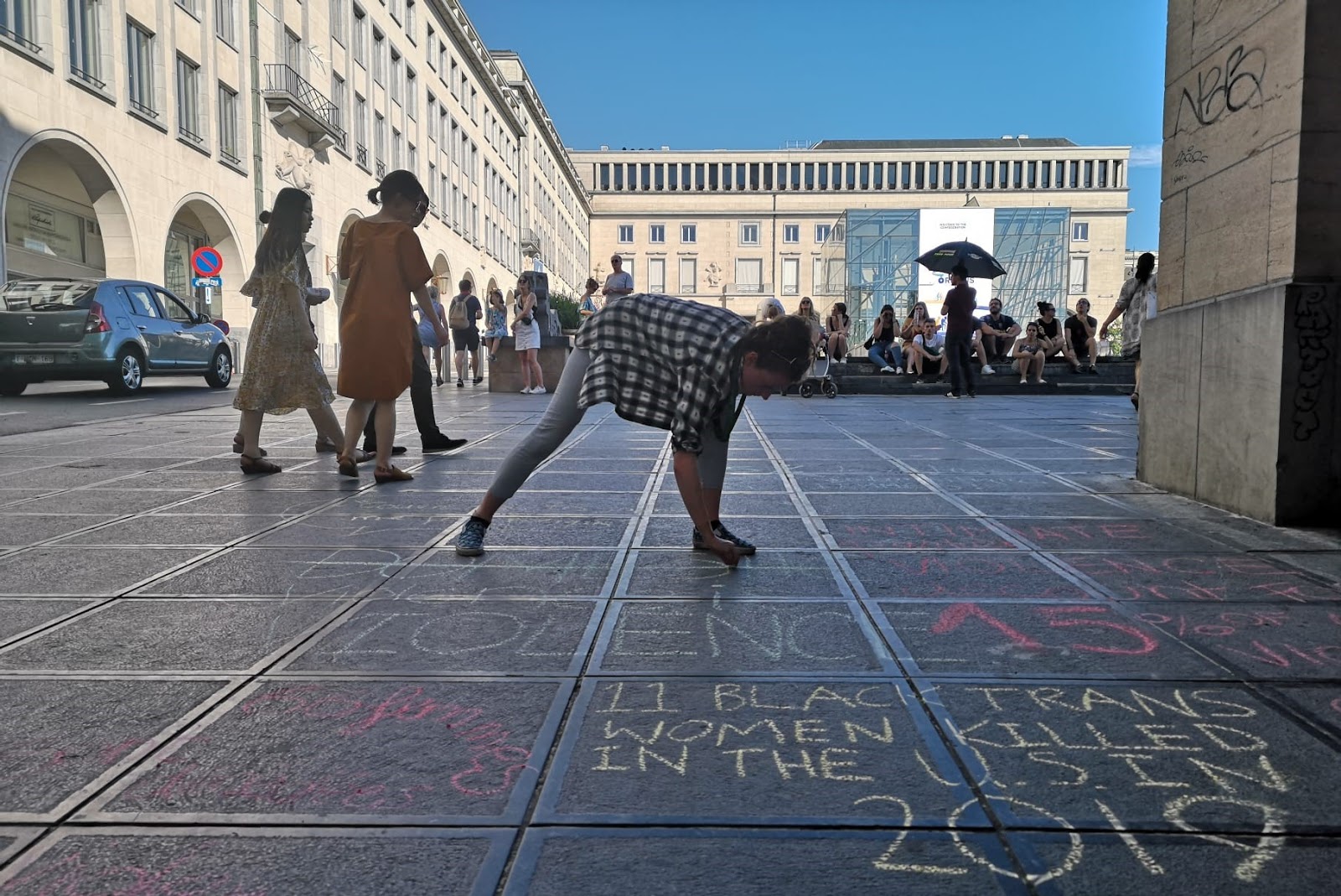
#FreetheGender!
Brussels (Beglium)
29 June 2019
A group of participants took to the streets of Brussels, inviting passers-by to join the conversation on gender-based violence. The street action shared facts and statistics, the hashtag #FreetheGender, as well as articles and blank pieces of paper with discussion points, meant to engage the public in discussion.
See the event on Facebook.
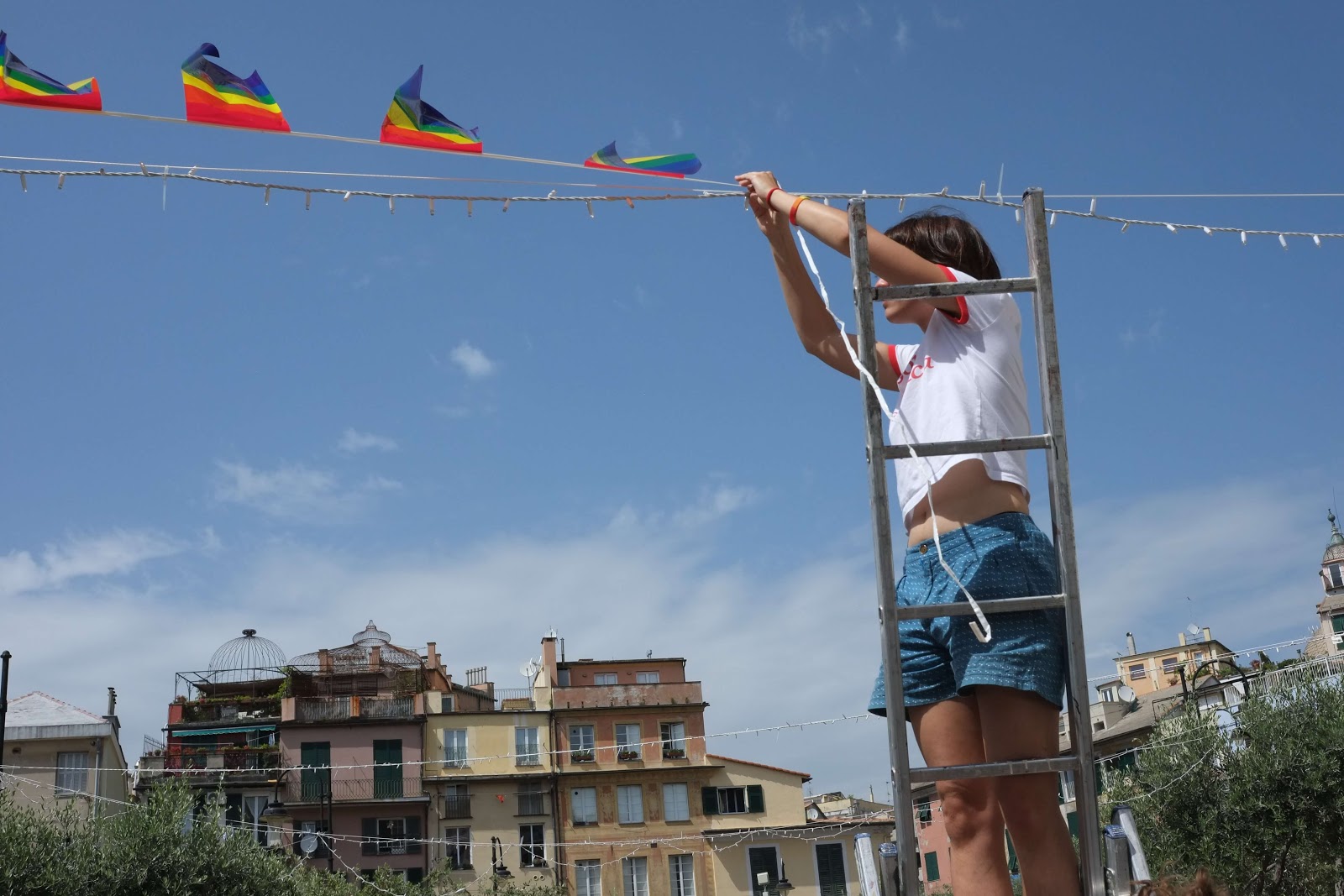
Ligura Pride goes (Service Civil) international!
Genova (Italy)
June 2019
A group of 9 international volunteers traveled to Genova, Italy, to work with the coordinating committee of Liguria Pride 2019, the annual Pride event of the region. The volunteers were involved in the running and organisation of 67 activities over the 8 days of the Pride Village, which focused on gender and LGBTQIA+ education and community engagement.
The events included debates, workshops, activities with children, presentations, a tour of LGBTQIA+ arts in Liguria and, of course, the Pride parade! The volunteers met and exchanged with many local groups, such as the Pangender Association, Liguria Rainbow and Non Una di Meno, with whom they could share and exchange approaches and experiences.
Read more about it here, or hear from the volunteers and coordinators in this video!
“I feel more powerful and courageous to fight in a world that’s still very far from accepting and opening. Thank you for all the things you taught me, you said to me, thank you for making me stronger and more proud.” Gio, 17, workshop participant.
Gendered Realities Workshop
Berzano di Tortona (Italy)
June 2019
SCI Italy ran a workshop in Berzano di Tortona, attended by thirteen participants. The workshop was an opportunity to learn and share views on topics related to gender, social inclusion and non-violence.
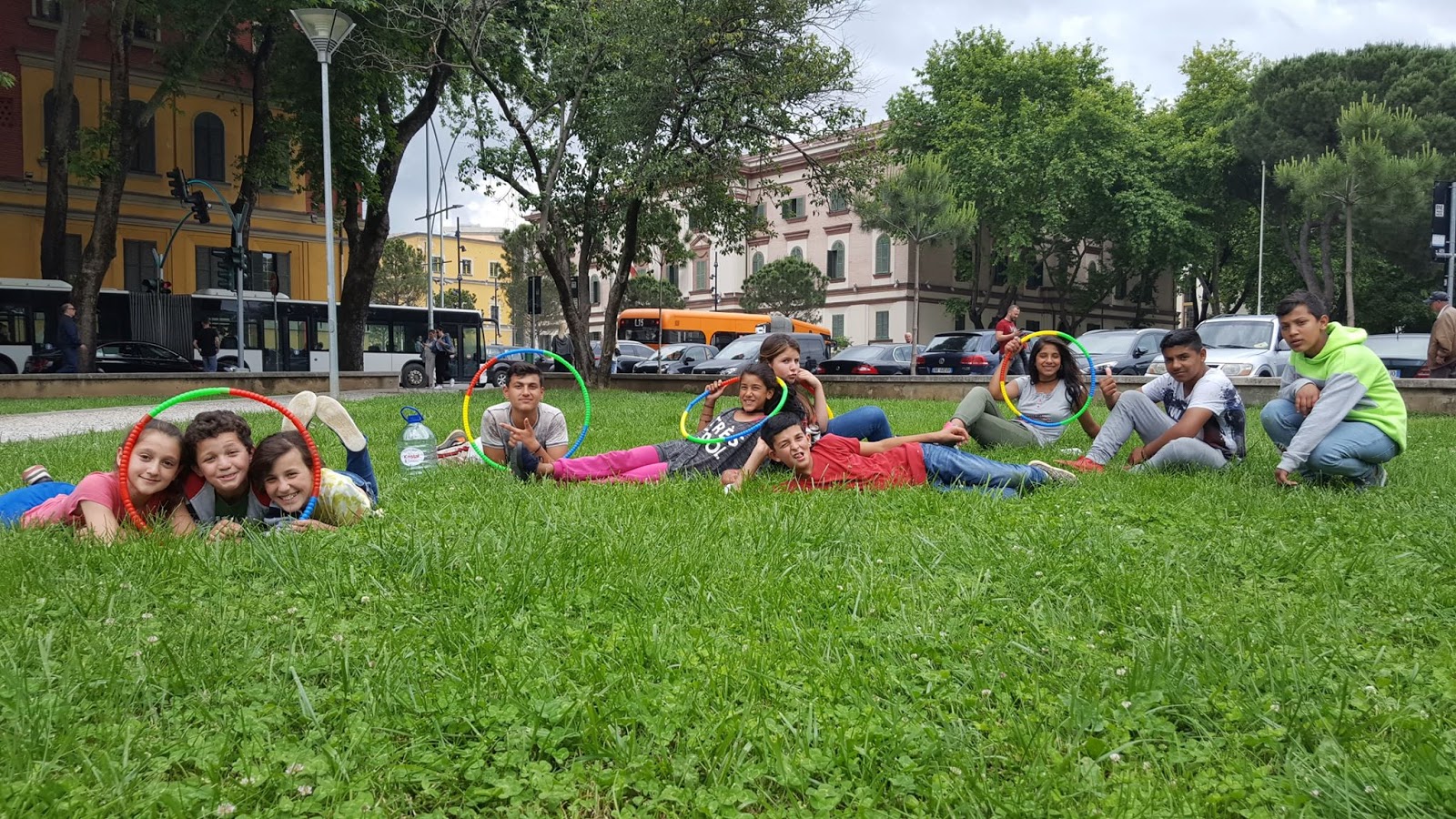
Gender Realities & Inclusion Workcamp
Tirana (Albania)
PVN Albania organised a workcamp to raise awareness of gendered realities and practices in Albania, especially among marginalised groups in rural areas. Volunteers organised activities focused on the topic of gender, gender discrimination and violence, personal perspectives and stories, with:
- Roma youth
- Mothers from the Roma community
- Young people in Vaqarri rural school
- Young people in Lalm rural schools
Hear about the impact of the project from a young participant-
“I am from a village not far from the city, however I feel it is too far because there are not so many free time opportunities for my friends and I. This camp made me feel important; made me happy. I learned so many things about domestic violence and gender roles we do have in our families. I have realised that many times I have been object of violence somehow, my mother as well. Now I think everyday, what and how I should do. PVN is my referring point to be consulted and ask for advice. It Looks such strange that from a camp you came to have fun with some volunteers from other countries, and it ended up that understanding my situation in my family and my society.” S.G, pupil in Ndroq area.
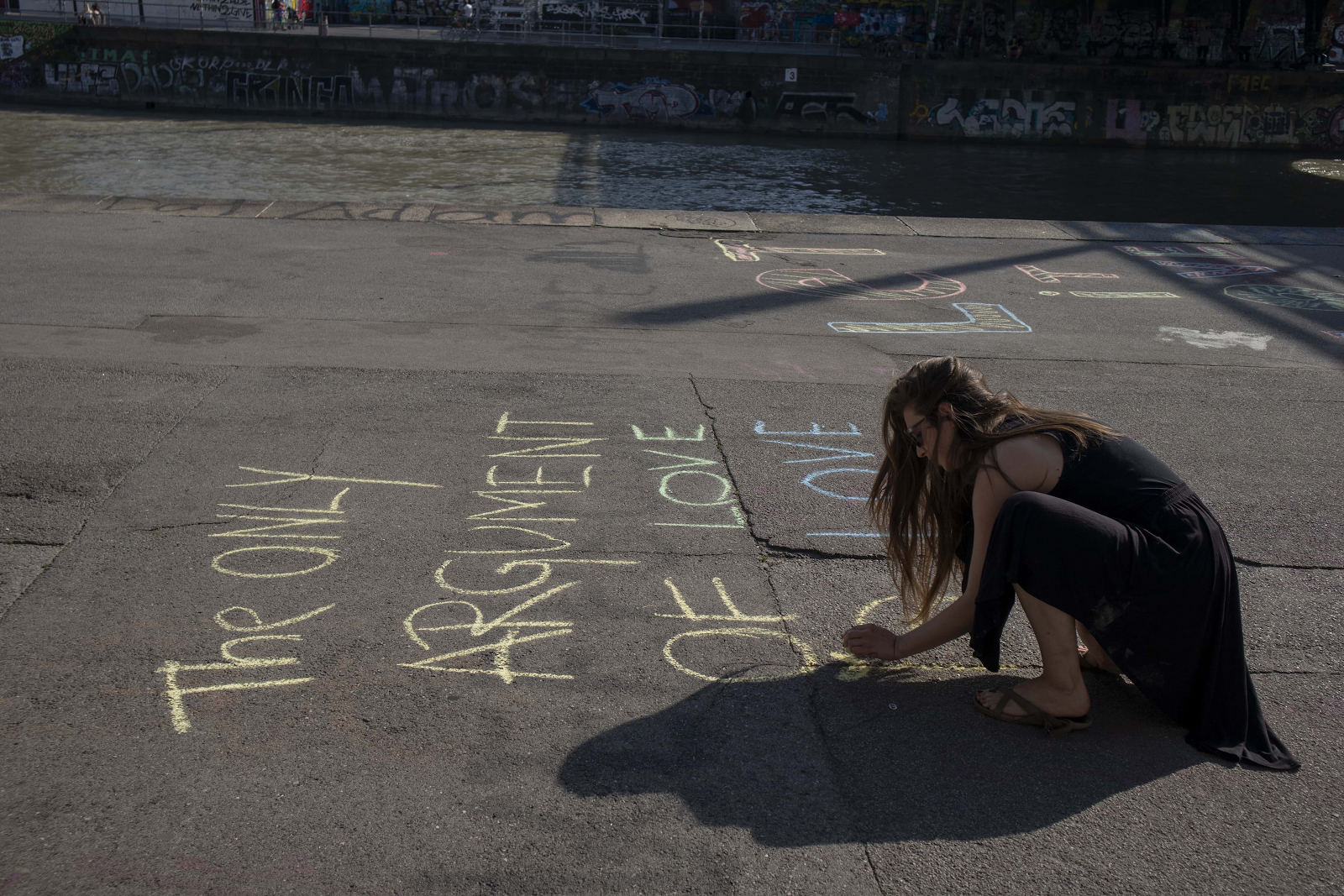
Love is love street action
Vienna (Austria)
8-9 June 2019
What would you do, if you wanted to challenge the concept of heteronormativity in a creative matter? With this street action in Vienna, SCI activists stimulated passers-by to question their usual thinking structures on gender and love.
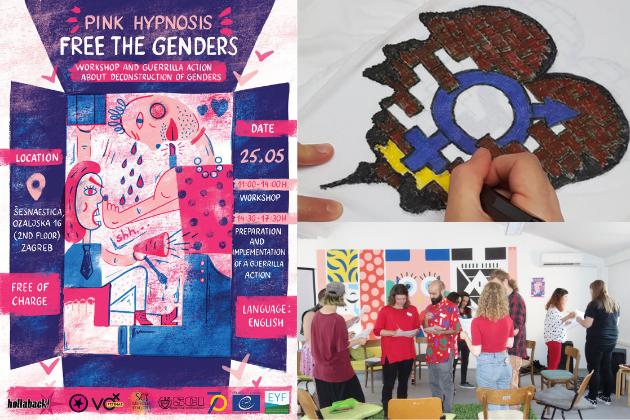
Workshops on gender topics
Zagreb (Croatia) and Budapest (Hungaria)
25 May 2019
Two groups met in Zagreb and Budapest to break down gender norms, hear diverse voices and have important discussions around topics such as:
- (Deconstruction of) gender roles
- Social vs. labour market roles of women
- Current political trends
- Gender-based violence
- Privilege
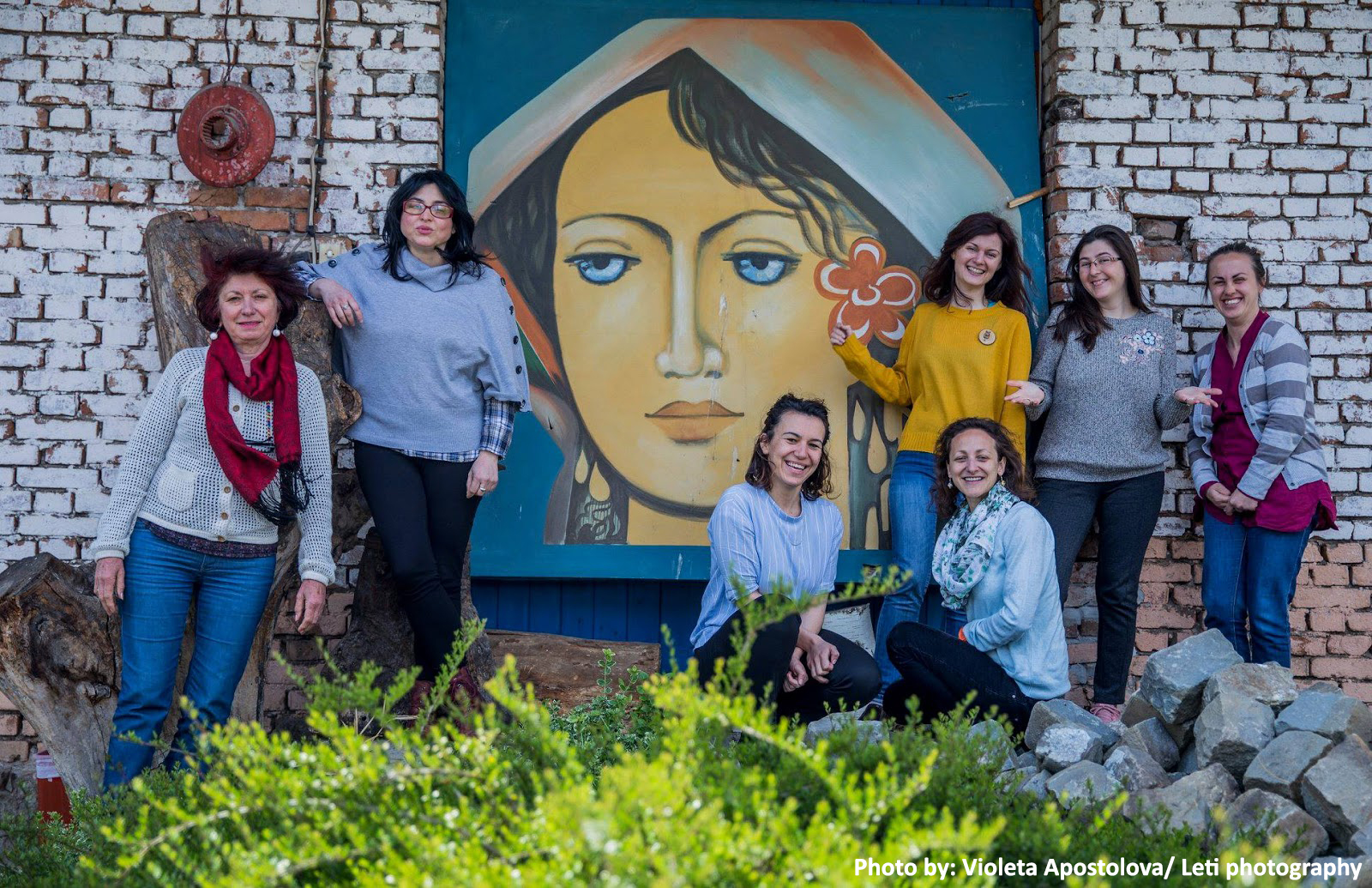
“SHE in…” Training
Gabrovo and Veliko Tarnovo (Bulgaria)
20 April 2019
CVS Bulgaria held a one-day activity which brought together women from the two cities and informed the participants on how to organise local events in the format of “SHE in …”, a successful social action strategy using multipliers for female empowerment.
Campaigning Training
Between 19th and 24th November 2019, 23 SCI volunteers and activists from different European countries met in Rome for a training course on campaigning. The training was given by Valerie Weidinger and Thomas Schallhart and allowed participants to acquire skills and knowledge on how to design and develop a successful campaign. Participants acquired in-depth knowledge on campaigning, including steps to create a campaign, realize SWOT analysis, analyse opponents and allies, set SMART goals, define a winning communication strategy, and much more.
Inspiration was found during a visit to La Casa Internazionale delle Donne, an outstanding example of how women’s activism can be vital for the protection of fundamental rights and the promotion of gender equality at the local level, and by taking part in the demonstrations organized by the movement “Not One Woman Less,” a global movement campaigning against gender violence.
During the course, the results of the Assessment Tool were presented: this provided an example of needs analysis and served as the basis for a group reflection on SCI’s gendered realities.
During the final part of the course, the participants developed their own campaigning ideas, setting action plans for the following months. One of these includes the publication of the booklet “Time to Face Gendered Realities”, the list of recommendations and the gender-sensitive name tags, which have been made available to the SCI movement.
Overall, the course was a success: the participants left the Eternal City with concrete action plans in their pockets on campaigns they would like to run in the future, each of them including a gender perspective.
